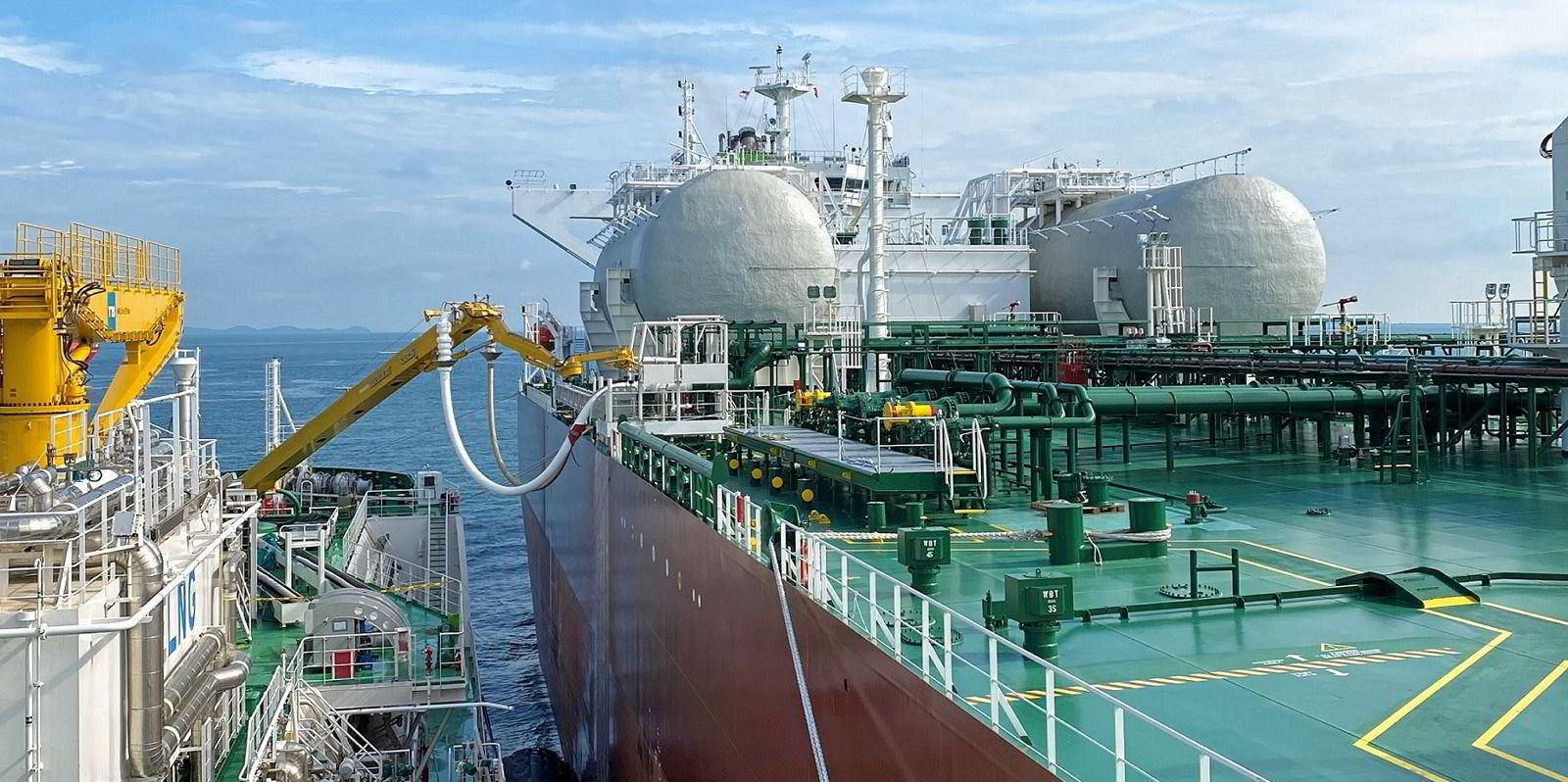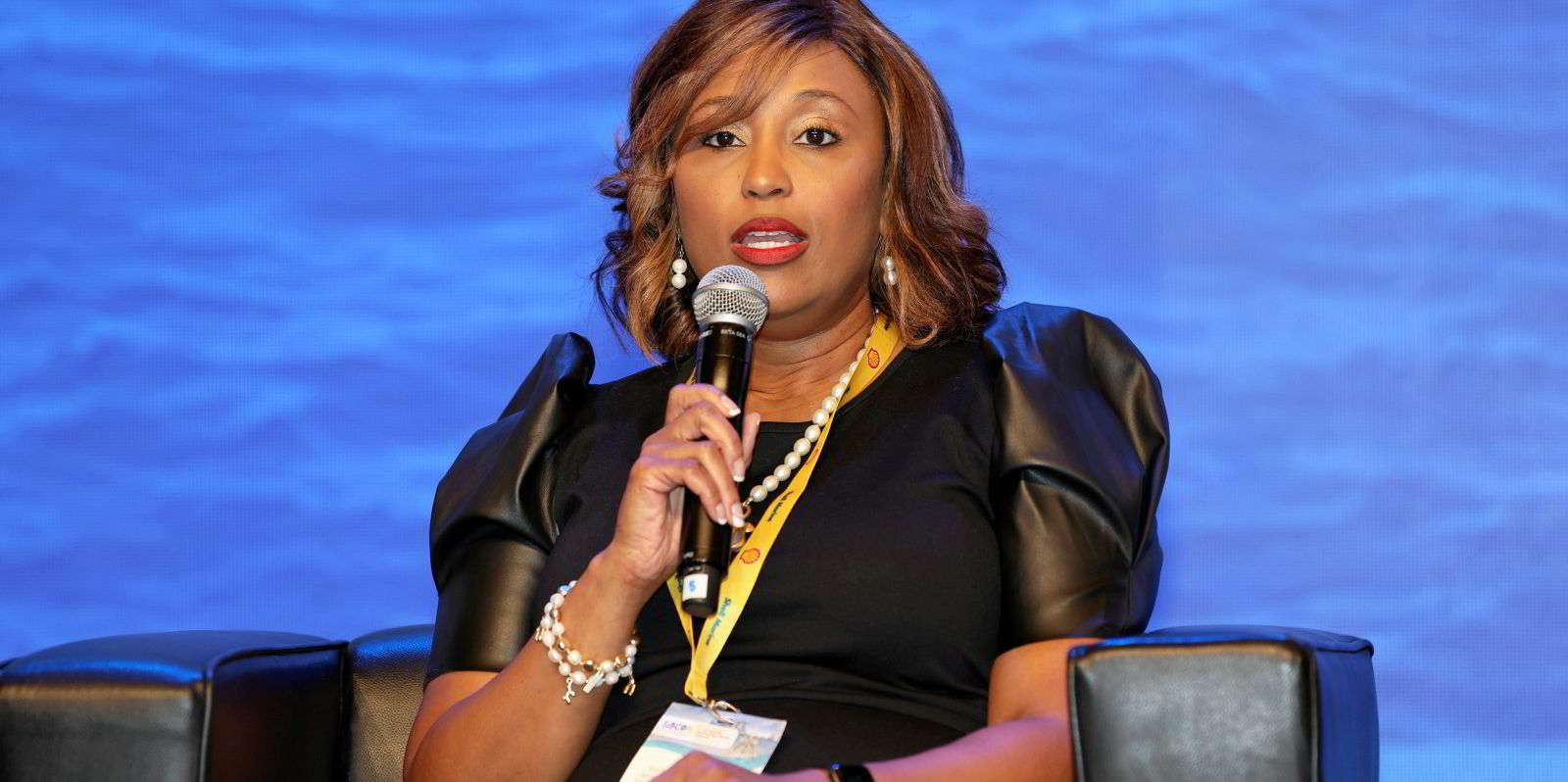Melissa Williams’ job as president of Shell Marine has changed.
“It’s very dynamic,” Williams said. “If I think back to 2020, the conversation was should we decarbonise? Today, we agree we should decarbonise and we are moving towards that.
“Now we see that you can decarbonise based on the assets and the types of fuels that exist today — fuel oil, dual-fuel LNG and dual-fuel methanol.
“It is a bit more for us to focus on as an industry and figure out how to solve that problem.”
Looking back, just over a year ago, Williams said there was such a wide funnel of assets and fuels to focus on but this is narrowing now.
“We are making progress, it is just a bit slow,” she said. “We do have some first movers, but they can’t move alone. Gathered together, it could make a significant impact so that’s what drives my passion.
“Shipping is one of the most robust segments in the world,” Williams added, reminding how the industry performed through the Covid-19 pandemic. But it is not aligned to net zero by 2050 like other transportation sectors such as aviation.
Shell is calling on the International Maritime Organization to align shipping to the 2050 emissions goal along with interim targets to drive progress. Williams said it takes two years to build a ship, but it can take four to 10 years to build infrastructure at the scale shipowners need it.
But Williams said most shipowners are not taking steps to decarbonise.
Her message to owners?
“Let’s start moving together. Now is the time to act,” she said, adding that one policy regime change could leave an owner’s assets exposed. “Reach out and go to your integrated partners and start developing a plan and act on that plan today.”
Williams said Shell’s Decarbonising Shipping: All Hands on Deck 2.0 report, which was produced by Deloitte at the start of June, highlighted 12 recommendations from its first 2020 version — not all of which have been progressed — along with 18 more in this 2023 version.
That is the purpose of the report, she said: “Talking is good but at some point, we have to start doing things.”
Williams urged owners, who she said are price-driven, to “start small” and “be proactive”.
Identify who to partner with, try getting a stem of a new fuel or energy technology today and get crews familiar with these so there is already a plan of action when a new policy is introduced.
She warned that those who wait may find that carbon offsets — something Williams dubs “the last resort” — are the only option open to them.
“Do you want that to be your organisation?” she asked.





